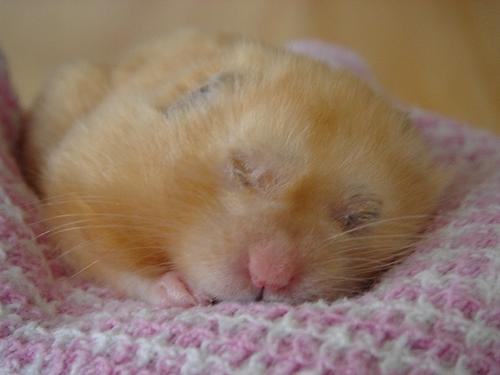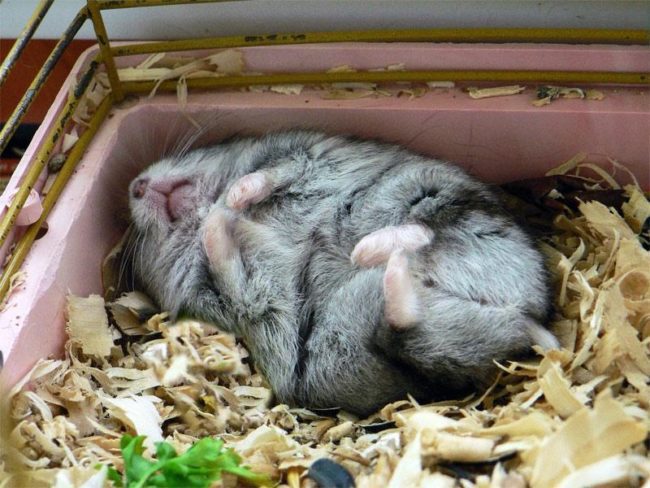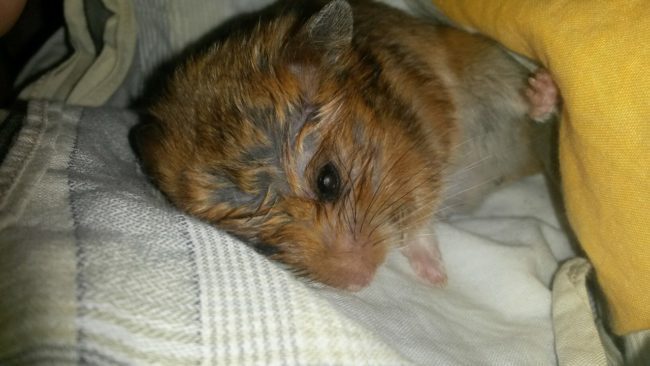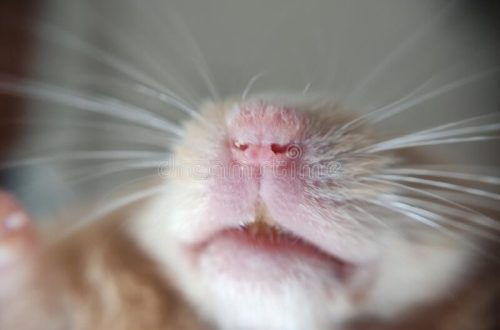
Why does a hamster sleep constantly: the norm or deviation?

Often we buy funny Djungarian and Syrian hamsters for our children. It is a pleasure to play with them and caress your favorite pussies. But often from children who are carefully watching the jungars, you can hear the question: “Why does the hamster always sleep?”. And plump-cheeked babies sleep for a very long time during the day, which sometimes causes anxiety among the owners. A long-sleeping hamster is a physiological norm or one of the symptoms of an illness of a funny animal.
Contents
Why do hamsters sleep during the day
The ancestors of our pets were wild rodents of the hamster family. In their natural habitat, hamsters are nocturnal, and sleep during the day before night hunting. The instincts were passed on to our pets. Do not disturb the hamster’s sleep, in response he can bite or get sick from stress.
How much do hamsters sleep per day
The physiological norm of sleep for domestic animals is 8-12 hours., some individuals can sleep up to 15 hours a day. Our pets do not have to worry about food, so their regimen consists of feeding, playing and long sleep. After stress, especially when changing the situation, or past illnesses, little fluffies can oversleep for up to 20 hours for several days in a row.
How hamsters sleep
The sleep pattern of cute jungars depends on the individual characteristics of the pets. Furry animals go to bed and wake up at completely different times. If your sleepyhead sleeps for 14 hours a day, but at the same time eats well, actively frolics and reciprocates affection – you have no reason to worry.
Why does a hamster sleep all the time
With complete immobility of the baby, two states are possible – death and stupor (hibernation). During hibernation, the rodent is curled up, there is shallow breathing and a pulse, but the body is not stiff, as when the animal died. Warming and improvement of the light regime brings out the stupor of the rodent.

But if your baby sleeps all day, is not active at night, eats little and does not play, most likely the animal is sick. The animal, when unwell, tries to hide from people, to lie down. An attentive owner of a hamster should pay attention to changes in the behavior of a pet:
- the pet sleeps longer usually, normally the animal can sleep longer after a change of scenery or in old age;
- the animal eats and drinks little or completely refuses food, does not even eat favorite treats;
- the pet has stopped licking, the genitals are contaminated;
- manifestation of aggression unusual for a hamster;
- lethargy while awake;
- difficulty moving around the cage;
- wool is dull, sticky, easily falls out, while the appearance of bald spots is a physiological norm in old animals;
- wet fur on the neck and chin, which indicates problems with the teeth;
- discharge from the eyes, nose, wet tail;
- change in the nature of the litter, it can become liquid or excessively dry up to its absence.

Any hamster can get sick, regardless of the conditions of detention and care. It is advisable to pay attention to the change in the behavior and appearance of your rodent in time and take all measures for the recovery of the baby.
First aid for a sick hamster
If your pet is sick, you need to:
- to separate the rodent from other animals in group keeping;
- create a calm environment for a sick animal;
- wash and disinfect the cage, house and all the toys of the sick dzhungarik;
- throw away food and bedding;
- in the absence of appetite and thirst, let lick drops of water from a 1 ml syringe without a needle or wet the fur around the mouth to prevent dehydration; it is impossible to force the liquid in to prevent pneumonia;
- when sneezing and discharge from the nose – keep the baby warm, remove the discharge with a cotton ball;
- with constipation – drink 1 ml of vaseline oil and massage the abdomen;
- in case of acute diarrhea, wet tail, discharge from the eyes, injuries – urgently take the animal to a veterinary clinic.
After first aid and no improvement after the first day, it is advisable to consult a specialist. Our domestic hamsters are animals with an intensive metabolism, so the development of the disease can be rapid. The baby may need surgical treatment or the appointment of veterinary medicines.
The speedy recovery of the hamster depends on the observation of the owner and the timeliness of the treatment started. Pay attention to your pet’s sleep duration, activity and appetite, and let your pets never get sick. .
Why does a hamster sleep all the time
3.8 (76.2%) 142 votes





